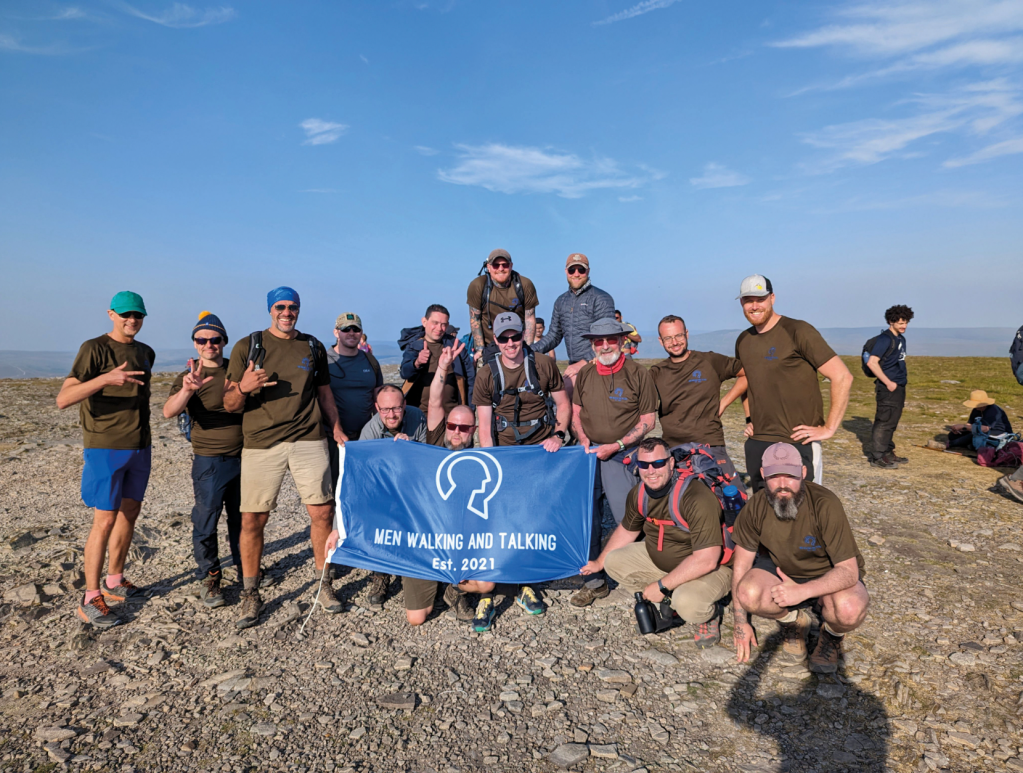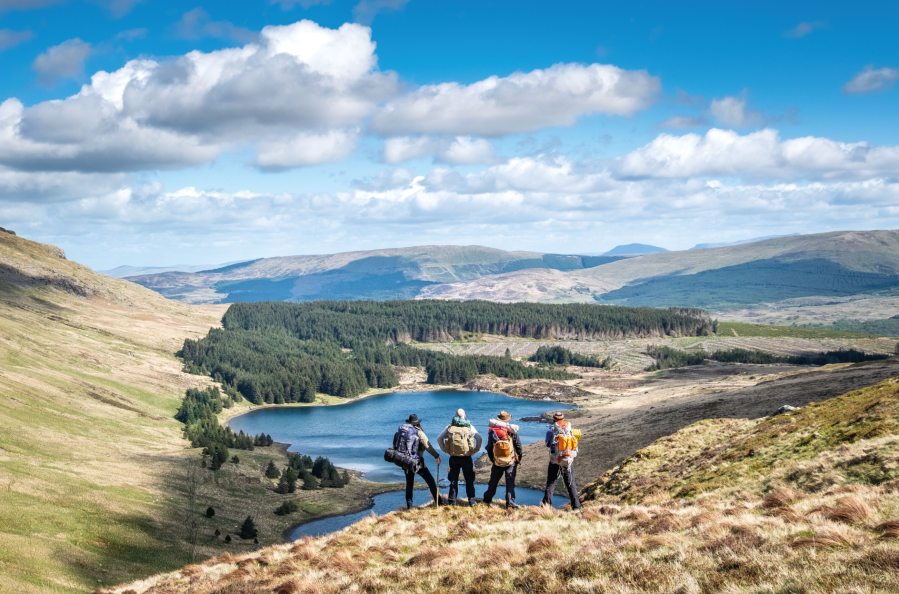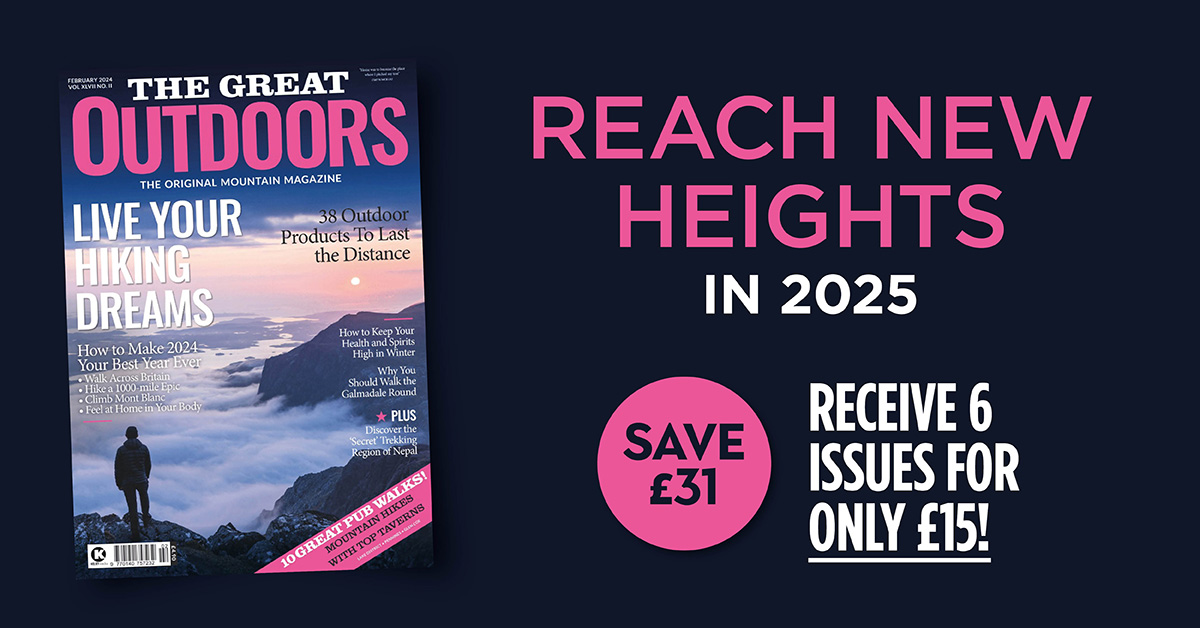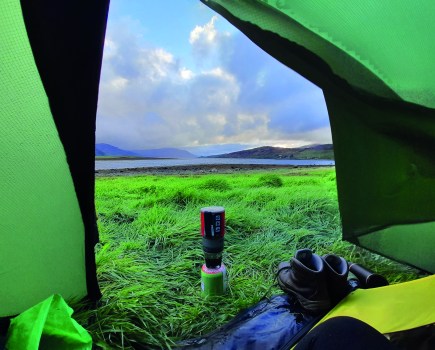Men around the country are suffering because we don’t always find the words to let them speak. Might organisations like Men Walking and Talking offer part of the solution?
‘Alright?’ ‘Yeah, not bad. You?’ ‘Yeah, yeah, fine thanks. Anyway, about this GPS/route/pub/tent…’ And then it’s gone. The chance to ask, actually ask, how someone is, slips away. I’ve spent whole weekends walking with friends talking about everything and nothing, and it’s only on the drive home that something important is teased into the open. A health worry, a family torment, a work thing, an acknowledgement that I’m-just-not-feeling-quite-right-in-my-head-at-the-moment. Other times, it may never come to the fore. I know people who will spend the rest of their lives regretting the conversation they never had with a loved one or friend.
Main image: A group of walkers in Eryri/Snowdonia | Credit: Shutterstock
A mate from overseas once revealed her bafflement that British people always ask how you are, but definitely don’t want to know the answer. I explained in my most serious anthropological tone, that ‘How are you?’ was a greeting protocol, not an actual question. ‘Yeah,’ she mused. ‘But that’s really stupid. No wonder so many people are worried and lonely.’ And the thing is, she’s right.
One of the things I learned when I did a two-day mental health first aid course (something I highly recommend!) was that everyone has mental health. It’s just like physical health – you can be well, or ill, for a long time or temporarily. You might have a mental health condition but it’s stable and you feel like you’re getting on with life regardless. Or you might have no diagnosable condition but just be having a really rubbish week. We humans are social creatures and there are some aspects of life that need the input, support and companionship of others.

A Yorkshire Three Peaks event in June 2023. Credit: Men Walking and Talking
This is why I love the work of Men Walking and Talking. They’re a small community of men who’ve set up groups around the country to go for a walk. That’s it. Turn up, come for a walk and if you want to, talk. Or not. Whatever works for you. It’s non-judgemental, safe, welcoming, and starts to normalize the idea that men can talk about their feelings without risking their masculinity. That having needs isn’t the same as being needy. That talking is power – it makes you stronger and more resilient, a better dad, son, partner, person. That you can move your body, get some fresh air, get things off your chest and then plug back into the challenges of life, with more capacity to cope. Rigid trees snap while flexible trees draw nourishment from a whole ecosystem of support and weather the storm.
There’s a magic in talking while you’re walking – you’re literally headed the same way, so have common ground and a shared perspective. Often your breathing and pace gets into sync – your human self can’t help but seek out physiological alignment. Cortisol, the stress hormone, drops, and you get into flow. A journey gives you time – to talk, and lull into silence, to pick up thoughts and talk a little more, to feel safe.
We TGO’ers are drawn to the outdoors – the adventure, connection and challenge nourish us. Some of the best times I’ve had on the hill have been travelling solo – not talking to anyone but myself for three days. Sometimes I’ve felt calmed by quiet companionship that doesn’t involve much talking at all. I’m not saying we should spend every walk yammering on or attempting amateur therapy hour. But if talking happens, make it count. It’s not your job to fix them, but to allow them to speak up.

On Ben A’an. Credit: Shutterstock
Men Walking and Talking have this advice:
- Be brave enough to start a conversation that might get deep.
- Ask your friend how they’re doing. Twice.
- If a regular walking mate is dropping out of plans, tell them – ‘I miss you, do you want to meet up?’
- And – even if these things feel weird to say – your friend might need to hear the truth: I’m proud of you. I will be here for you. You don’t need to be perfect. You deserve to be happy…You might be the first person to say it to them in their whole life.
- If they don’t want to talk, that’s ok. But make sure they know that you’ll be there when they do.
- If they do talk, don’t offer solutions, a commentary, a ‘other people have it worse’, or tell them why they’ve got it wrong or shouldn’t feel like they do. Just…listen.
A conversation can save someone’s life. So, my friends, let’s make this the summer of men walking and talking.







